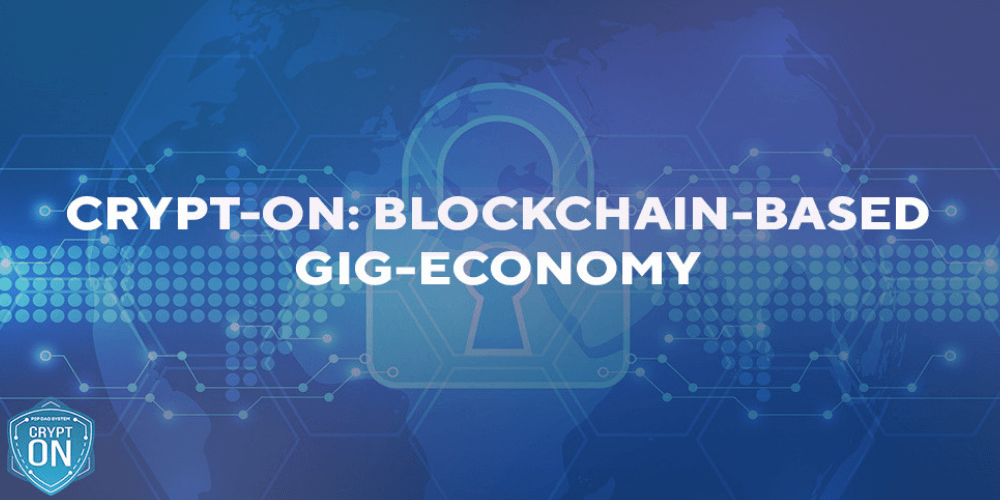
In the last couple of years, one of the leading trends in the global economy was the so-called gig-economy, the economics of shared ownership with its labour market built on contract jobs instead of full-time employment. It does not come as a surprise since freelancers are motivated to complete their projects quicker while maintaining high quality which, in turn, also benefits the employer. Moreover, there are no workplace expenses, no need to pay various social security contributions and the employer has to pay less taxes.
According to the Freelancing in America: a National Survey of the New Workforce report, in 2017 the number of freelance employees in the USA was around 57.3 million people. In 2016 freelancers earned around one trillion US dollars in the USA alone. The market continues to grow: according to PeoplePerHour, an independent online market, by 2020 every second person in the USA and UK will be freelancers.
As the market grows so do the tools helping both the employers and freelancers find one another. Furthermore, according to PwC, by 2020 the market for platforms servicing the gig-economy will reach $63 billion. Not only that, the main role in the development of P2P may be played by the blockchain.
DAO and decreasing commission fees
To maintain the operation of a centralised freelance employment exchange continuous expenses on staff, technical support, management must be covered. Another expense for freelance platforms is managing all the legal issues related to the platform’s operation in various jurisdictions. And, finally, the rapidly growing segment of P2P employment constantly offers new solutions, thus creating the demand for major promotion expenses to battle competition. Moreover, as the platform develops, expenses for the three aforementioned elements increase exponentially, thus creating a serious obstacle to its growth.
In order for freelance employment exchanges to be profitable they need to charge higher commissions for transfers. As a result the main raison d’être of the P2P sector is lost, whereby even though wages are protected, to a certain degree, from intermediaries such as tax agencies, pension funds and other traditional institutions, the freelance employment exchange seems inevitable to fulfil their roles.
In these circumstances, the use of blockchain becomes the best solution. One of the main features of blockchain, namely its low transaction fees, will have a decisive role in the operation of a freelance employment exchange. Meanwhile, if a platform can build a DAO on its foundation with a large number of active users, many tasks related to the platform’s development, improvements in functionality, increasing the user base and managing legal issues will be carried out by the community itself. This is the model that Crypt-ON team seeks to implement.
Security in Crypt-ON
However, high commission fees are not the only issue on the freelancing market. For both the client and the contractor it is vital to know that the other party fulfils its obligations in a timely and honest manner. To achieve that exchanges often put in place user reputation systems. However, there are virtually no guarantees any exchange could give that at some point one of the parties doesn’t go rogue.
Crypt-ON offers a whole array of measures directed towards creating an ecosystem as secure and convenient as possible that would also ensure that the freelancing market interactions break new ground in terms of quality.
Thus any actions a user takes on the platform, logs of his transactions and comments by other users will be forever stored on the blockchain. Transactions can be made with the help of a few types of smart contracts that can be tailored to each particular transaction. They also allow reversible transactions should both parties agree upon it. The contracts can even be modified for cases when a party is running late on a deadline should the client agree to postpone the deadline.
The main thing the platform will offer is a full-fledged escrow. Lack of governmental, financial or legal intermediaries helps reduce commission fees. This also entails additional risks for transaction parties that often don’t know each other. Crypt-ON will allow depositing the transaction amount with an independent trustee until both transaction parties confirm that all the contractual obligations have been fulfilled.
If the obligations to one of the parties have not been fulfilled, it sends an arbitration request. Initially, system administrators will fill the arbiter role, later, as the Crypt-ON community develops, DAO delegates will take on this role.
The remote employment market that is growing steadily every year has all it takes to top the list of employment sources in the near future. Using the convenient and secure infrastructural solution by Crypt-ON, both employers and job seekers can enjoy the effective tools the platform provides to achieve their respective goals, be it high quality of work or profitable monetization mechanisms. The synergy between the p2p loan service and p2p geo-exchange make Crypt-ON an influential business hub with cryptocurrency as a payment method.
To learn more about all the services Crypt-ON has to offer, please visit the official website and read the whitepaper
https://drive.google.com/file/d/1ItcfVNhOnSiXhRlf-OIAjZDSnfJuIS66/view

